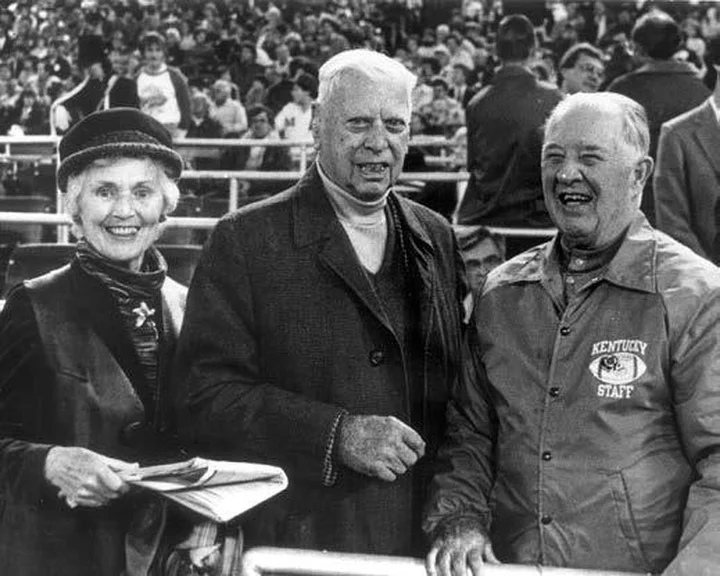Fifteen People Arrested This Morning as Sheriff’s Office Serves Warrant at House on McK’s Murray Road
LoCO Staff / Saturday, April 26, 2025 @ 2:24 p.m. / Crime
PREVIOUSLY:
###
Press release from the Humboldt County Sheriff’s Office:
On April 26, 2025, patrol deputies with the Humboldt County Sheriff’s Office served a search warrant at a residence located in the 1500 block of Murray Road, McKinleyville. This is the second search for the same house since the new year and has been the source of numerous community complaints in recent years. This search warrant was the direct result of the complaints received. During the search, 15 people were located and arrested.
The homeowner, Aaron Stott (age 46), was charged with the following crimes, H&S 11351: Possession of Fentanyl for sales, H&S 11366(a): Maintaining a drug house, PC 135: Destruction of evidence and PC 12022.1: Committing a Felony while out on bail. Stott was arrested for similar charges in January during the last search of the home. The other 14 occupants of the home were arrested for violations of H&S 11365: Being present where drugs are used/sold. This case will be forwarded to the Humboldt District Attorney’s Office for prosecution and to Humboldt County Code Enforcement for other issues located on the property.
Anyone with information about this case or related criminal activity is encouraged to call the Humboldt County Sheriff’s Office at (707) 445-7251 or the Sheriff’s Office Crime Tip line at (707) 268-2539.
BOOKED
Yesterday: 2 felonies, 10 misdemeanors, 0 infractions
JUDGED
Humboldt County Superior Court Calendar: Yesterday
CHP REPORTS
No current incidents
ELSEWHERE
RHBB: Amazon Warehouse Seen as Potential Revenue Lifeline in Tight County Budget
RHBB: This Valentine’s Day, Keep the Love Flowing — Not the Outages, says PG&E
THE ECONEWS REPORT: Reviewing Trump’s First 100-ish Days
The EcoNews Report / Saturday, April 26, 2025 @ 10 a.m. / Environment
Image: Stable Diffusion.
Presidents often set a “first 100 days” agenda, when, fresh from their inauguration, they have the most political power and influence in their term. The first 100 days is not only a benchmark to measure success but a preview for how they hope to govern for the rest of their four years.
We are at day 95, close enough to measure Trump’s impact on the environment. Instead of a long list of all the rollbacks and deregulation, guests Scott Greacen of Friends of the Eel River and Matt Simmons of EPIC discuss what the first 100 days reveal about the President’s agenda and what it foretells moving forward.
Want more?
HUMBOLDT HISTORY: 105 Years Ago, This Ferndale Kid Pitched All 26 Innings of the Longest Game in Major League Baseball History
James Pegolotti / Saturday, April 26, 2025 @ 7:30 a.m. / History
Marathon Man? Iron Man? What else would
you call Joe Oeschger (1892-1986), Humboldt
County’s first major league baseball pitcher? Consider
these facts:
- In 1917, he completed all 14 innings of a scoreless tie, pitching for the Philadelphia Phillies.
- In 1919, for the Phillies, he pitched all 20 innings of a 9-9 tie game.
- On May 1, 1920, now with the Boston Braves, Oeschger was one of two pitchers who lasted all 26 innings in the longest game in major league baseball: a 1-1 tie between the Braves and the Brooklyn Pilots. The Brooklyn pitcher was Leon Cadore.
- All three games were ties because darkness ended the games in a time when lighted stadiums were still a dream.
Joe Oeschger gained his needed stamina for those lengthy games working on the family farm in Ferndale. The journey of the Oeschger family to the “Cream City” began in Switzerland in 1888, when sweethearts Josef Oeschger (pronounced “Esh-grr”) and Maria Michel left their homeland for Chicago on the same trans-Atlantic ship. In 1890 they married in the “Windy City” and on May 24, 1892, Joe was born. Not long after, Josef ’s sister welcomed them to Boulder Creek, near Santa Cruz. In their seven years there, two more children were born, Vernon (1894) and Ida (1897). Why the Oeschger family then chose to move to Ferndale at the turn of the 20th century is unknown, but clearly Josef had designs to become a dairyman by buying a one-hundred-acre farm on Reas Creek, off Centerville Road, and three miles from the Pacific Ocean. Once the family settled on the ranch in 1900, along came three more children: George (1901), Clara (1903), and Walter (1912).
Joe was eight years old when the family moved to Ferndale. The Oeschgers, who were Catholic, were pleased to know that the town had a grammar school run by the Sisters of Mercy, so Joe took the first of many a long walk to the school, a building that had been Ferndale’s original Catholic church. “For what we called the recess hour,” Joe reminisced years later, we had a little yard alongside the church [and] a ball we would kick around a little bit, but that was about all the education we had along the athletic line. [In class] we were not allowed to whisper or talk and really had to study. The Sisters demanded we get in our lessons or assignments and if we did not get them in, we would have to stay after school. Generally they would assign some prayers to make up for it.
Ferndale High School baseball team of 1911 from the yearbook, Tomahawk. From left, top row: unidentified, Rollin Boynton, Otto Harbers, Bob Damon, Glenn Haas, Bert Rusk. Bottom row: unidentified, Joe Hindley, Ray Goble, unidentified, and Joe Oeschger, who often had a severe look when photographed.
Joe entered Ferndale High School in 1908, and as a pitcher on the baseball team, his athletic ability blossomed. He became known countywide for his talent, and was lured into pitching for local teams sponsored by logging companies and towns. Such extracurricular activity was not approved by the county school authorities, and even though Joe was the high school’s baseball star, he was banned from pitching for his school team during his senior year.
But besides his studies and athletics, Joe found another interest, this time of the romantic type: his classmate Ivy Teal. They both graduated in 1912.
Sweethearts Joe Oeschger & Ivy Teal, 1912 Tomahawk.
That summer Joe pitched for the Ferndale team of the newly organized Redwood League, with teams also from Eureka, Arcata and Fortuna. (The league disbanded four years later.) In July, a soldier team from Fort McDowell on Angel Island in San Francisco Bay took a ship north to Humboldt County and after they played the Ferndale team, a report of the game found its way to the San Francisco Chronicle:
The Fort McDowell players bring word that Oeschger, the pitcher of the Ferndalers, is a comer. The military aggregation has played against most of the good teams in the bay section … and, in their opinion Oeschger is the monarch of them all. He is a big right-hander … and with the training he will receive at St. Mary’s College, where he is planning to attend school this fall, he expects to learn many valuable points in the art of twirling.
It was hardly unexpected that Oeschger would choose Saint Mary’s College, for the then Oakland-based institution had been supplying players to the major leagues almost one a year since 1880. While Joe entered Saint Mary’s in September for a civil engineering degree, girlfriend Ivy headed to Berkeley and the University of California. (After all, Oakland and Berkeley weren’t very far apart in those days of trolley lines.) Once on campus, Oeschger surprised everyone by choosing to also take on rugby, a sport
Saint Mary’s had several different baseball teams that played under the college name and it was the Phoenix team that featured the best players. For years Phoenix had ruled the roost of the Bay Area’s college baseball league and that year the college hired an alumnus, Eddie Burns, a fine catcher, as the baseball coach. The Oakland Tribune covered the Phoenix team’s games, and when it was announced that Oeschger would pitch against Stanford in a February 1913, game, the paper quoted Burns as saying that Oeschger “is one, if not the best, pitcher to ever enter St. Mary’s College in the past ten years, which is high praise.”
Oeschger would lose that game, but in the year ahead win more than he lost. His effectiveness as a pitcher was watched by the eastern major league clubs, and when Burns signed with the Philadelphia Phillies as a catcher in 1913, he paved the way for the Ferndaler to also sign with that team. On March 13, 1914, the Tribune reported that Oeschger “has signed with the Philadelphia National League Club and will report to the organization next week … at an annual salary of $3,000.” Joe would leave for the Phillies with less than two years completed toward the engineering degree. He would never complete the Saint Mary’s degree.
After a goodbye to Ivy, he took the train east to join the Phillies. And who would be one of Joe’s pitching partners? None other than one of the all-time baseball greats: Grover Cleveland Alexander, who in 1911, his rookie year with the Phillies, led the National League in wins with a 28-13 record. Oeschger, known as “California Joe” in Philadelphia, would not make the kind of rookie splash that Alexander had made. However, he made a good impression in his first game on April 2, 1914, when he pitched the final five innings and allowed only one hit by the then world champion Athletics. A few weeks later the Tribune wrote that Oeschger was feeling the major league pressure “having difficulty in accustoming himself to the need of quick thinking and fielding in the majors.” What resulted from the thirty-one games of his first year was a 4-8 won-lost record.
Back in Oakland that fall he would tell Ivy of one constant non-athletic problem: people’s pronunciation of his name. Reporters loved to comment on the difficulty, with one source stating that “You have to gargle to say it right. Most of the fans call it ‘Oscar,’ and let it go at that.”
The Philadelphia Phillies pitching staff of 1915, the year the Phillies won the National League title. From left: Stanwood Fulton Baumgartner, Grover Cleveland “Pete” Alexander, Austin Ben Tincup, Erskine John Mayer, Albert Wentworth Demaree, Joseph Carl Oeschger, George Watt McQuillan.
Returning in the spring to the Phillies, Oeschger found a new manager, Pat Moran, who believed the second-year player needed more seasoning, so Joe was sent to Providence in the International League for most of 1915. It was a wise move, as Oeschger developed effective pitching styles that produced a no-hitter while in Rhode Island. Moran recalled him at the end of the season in time for Joe to win one game for the Phillies as they headed to the World Series. Though they lost to the Boston Red Sox and Oeschger did not pitch in the Series, nonetheless he pocketed $830 as his share. With a little extra money, he returned home and married Ivy on November 2, 1915. They would have three children: Anne (1919), Phyllis (1923), and Joseph (1925).
Preparing for the 1916 season, Manager Moran believed Oeschger would prove both a regular and a powerful surprise in the league. Unfortunately, during spring training in St. Petersburg, a finger on Joe’s left hand was knocked out of place and cut, an injury that put him on the disabled list for most of that year. But in 1917 he rebounded with a 15-14 won-lost record and a 2.75 ERA. A hint of what was to come happened on September 4 of that year, when he pitched all fourteen innings against Brooklyn in a scoreless-tie game called due to darkness. A reinvigorated Oeschger returned to Oakland and in the off-season coached the Saint Mary’s Phoenix team that had his brother Vernon as a pitcher. (Each of his brothers attended St. Mary’s and had urgings to reach the majors, but none ever did.)
As the 1918 season began, the Phillies had great hopes for Oeschger. Gone was Grover Alexander to the Chicago Cubs, and many saw evidence that Joe could be as good. Unhappily for Joe, just the opposite happened, for at one point he had nine losses in a row! Aided by his 6-18 won-lost record, the Phillies hit the cellar. Returning home to Oakland, he and Ivy welcomed their first child, Anne.
The 1919 season didn’t start out well either, but Joe’s “iron man” side reappeared on April 30, again against Brooklyn, when he pitched for twenty innings and a 9-9 tie. Still, the Phillies manager wanted wins, not ties, so in May, Joe was traded to the New York Giants, a team managed by one of the greats: John “Little Napoleon” McGraw.
It is likely that no pitcher ever made a less impressive New York debut than Oeschger. On his first start as a Giant on May 28, McGraw sent him in as a reliever to begin the tenth inning of a 2-2 tie with Pittsburgh. Joe walked the first two batters and was pulled. (Because he put the winning runner on base, he also was given the loss!) Three days later, McGraw gave him his first start, but after watching Joe’s performance in the first inning against four hitters, the manager yanked him. Here’s what a baseball historian wrote about that fateful inning:
The Robins made four whistling hits in succession off Oeschger, but did not score a run: one man was thrown out trying to reach third, another was thrown out at the plate, and a third was thrown out stealing. “There will never be another miracle like that,” said McGraw, and shipped Oeschger to the Braves.
— Harold Kaese, Boston Braves, 1871-1953
Joe arrived in Boston in mid-August and finished off the 1919 season with a 4-2 record. After the experience with McGraw, Joe found the Braves manager George Stalling to be “a real southern gentleman” who encouraged young players, but was also superstitious and hated pigeons. (Opposing teams would toss peanuts in front of the Braves dugout to attract the hated birds.) The manager also asked Joe to keep an eye on Jim Thorpe, the roommate Stallings provided him with. Considered one of the world’s greatest athletes ever after his triumphs in the 1912 Olympics, Thorpe had turned to professional baseball with some success. The press came to know of Thorpe also because of his escapades off the field. Years later, Oeschger would recall an incident in a saloon when Thorpe chose to illustrate the new football move, the “flying tackle.” The result was that Thorpe and the patron he chose for the demonstration both flew through the saloon window and ended up outside on the sidewalk. Thorpe would finish his baseball career shortly after Oeschger’s arrival in Boston.
In the spring of 1920, Oeschger began his first full season with the Boston Braves, and on April 15 he pitched a satisfying 1-0 blanking of McGraw’s Giants, but several losses followed and people wondered whether the Braves had made another trade mistake.
Then came the historic Saturday afternoon of May 1.
The Game
The 4,500 loyal baseball fans who showed up at Braves Field in Boston that day just wanted to see a good game, but what they got was plenty more: the longest game — 26 innings — in major league history. It was the third week of the season and the Boston Braves (in lowly sixth place) were hosting the second-place Brooklyn Robins, ancestors to the Dodgers. All day it had been overcast and drizzling and rain slickers abounded. With daylight saving time now in effect, fans knew that even if the game dragged on due to a rain delay there was plenty of time to finish before night fell. (Lighted stadiums for night games didn’t arrive until fifteen years later.) They couldn’t have been more wrong.
Oeschger and Leon Cadore, the pitcher for the Robins, had already faced each other once that season. Both were highly competitive, strong athletes, each over six feet tall, and though both had been born in Chicago, each had gained their youthful strength growing up in a small Western town: Oeschger in Ferndale, Cadore in Hope, Idaho. Cadore (born November 20, 1891) attended Spokane’s Gonzaga College briefly before heading east in 1912 to pitch in the minor leagues for four years. In 1915, the Brooklyn Robins, owned by Charles Ebbets, bought him from the Wilkes-Barre Barons for $1,500. Cadore, after several winless years, finally broke loose in 1917 with a 13-13 record. The next year he was drafted into “The Great War,” but once back to Brooklyn, in 1919 he pitched a successful season of 14-12.
For the Saturday May 1 game, Manager Stallings chose Oeschger to start the game. Usually, he chose Oeschger to pitch on Sundays because he knew the Californian went to church in the morning and the manager believed in the possibility of heavenly support! But Oeschger would never pitch on a Sunday in Boston because baseball games were not permitted on the “Lord’s Day,” (the “Blue Laws”), so it was not a surprise to Joe to find out that on that Saturday he would start against Cadore.
Oeschger: “I was happy to get the starting job because Cadore was pitching and he had beaten me 1-0 in eleven innings earlier in the season. I wanted to even things.”
[The Joe Oeschger quotations are from “Joe Oeschger Remembers” and a 1970 New York Times story.]
So with the sky overcast and the field still wet for the
three o’clock “Play ball!” Oeschger and Cadore began
what the Boston Globe would call “one of the greatest
games ever played.”
Happily, the drizzle stopped at the end of the first inning and the game moved swiftly along. After four innings, it was a scoreless tie, with each pitcher having given up only three singles, scattered over different innings.
Oeschger: “Cadore had a good curve ball and I had a good live fast ball that day.”
Then came the fifth and a Brooklyn run.
Oeschger: “I blame myself for the run. I pitched too carefully to Ernie Krueger … and walked him. Then Cadore hit a double-play ball right at me. I was overanxious and juggled it. I threw him out at first, but Krueger took second. He scored on a broken-bat single.”
Though Oeschger would only give up singles in the record-length game, Cadore was hit harder: two dou bles (one by Oeschger himself) and a triple.
Oeschger: “The next inning we tied the score when Walt Cruise hit a triple against the scoreboard in left. He scored on Tony Boeckel’s single.”
The sixth inning ended with the score tied 1-1, but the seventh inning proved a breather for Joe: he got three men out with only three pitches. Sitting in the dugout, he imbibed the glass of water that manager Stallings insisted he drink after every inning.
Oeschger: “We had a chance to win in the ninth when we filled the bases with only one out, but Charley Pick hit into a double play.” without significant excitement until the seventeenth inning.
Oeschger: “The only other critical inning I had was the 17th, when [Brooklyn] filled the bases with one out. It was a great play by Hank Gowdy [the catcher] that saved my neck. Rowdy Elliott hit a comeback grounder to me and I threw home for a force on Zack Wheat. But when Gowdy threw to first to complete the double play, his throw pulled Wally Holke off the bag. He lost the ball momentarily and big Ed Knoetchy came barreling home. Holke threw to the plate and Gowdy’s spectacular diving tag nailed Knoetchy.”
On one play, the Braves had recorded two outs at home and kept the game tied! No wonder the New York Times, in reporting the game, called it “one of the most remarkable double plays ever seen.” A sports artist for the Boston Globe captured that incredible play as part of his drawing of the game.
Oeschger: “From the 18th on, Rabbit Maranville and Hank Gowdy gave me pep talks. ‘Just one more inning, Joe,’ they’d say, ‘and we’ll get a run for you.’ George Stallings, our manager, said nothing. He didn’t even ask me if I wanted to come out. If he had asked me, I would have given him an emphatic no.”
“The crowd was eminently fair,” stated the Boston Globe in its next-day reporting. “After the game had passed the eighteenth inning, each [pitcher] was impartially cheered when leaving the box or coming to bat.”
Inning by inning, the pitchers seemed to get stronger: Oeschger allowed no hits in the final nine innings while Cadore allowed none in the last six. Inning by inning, the patient fans saw baseball’s longest-game records fall: the National League’s of twenty-two innings and the American League’s of twenty-four innings.
Oeschger: “By the 26th inning the batters were squawking they couldn’t see the ball. I certainly didn’t want it to stop and I’m sure that Cadore didn’t either.”
In fact, years later, Cadore would say that if his manager had tried to take him out of the game, “I think I would have strangled him.”
But Umpire Barry McCormick did stop the game because of darkness at the end of 26 innings, though several players urged one more inning so they could tell their grandchildren that they had really played three whole games in one afternoon. Still, the umpire held his ground and the game was called with the score a 1-1 tie. The time of the game? Only 3 hours and 50 minutes! The number of pitches? Cadore guessed he had thrown “at least 300 curves,” and Oeschger some 250 pitches, mainly fastballs.
(During that same afternoon down in New York in Yankee Stadium, Babe Ruth, newly acquired from the Boston Red Sox, hit his first home run as a Yankee, one that cleared the roof of the right field stands. Ruth would ultimately hit 659 homers for the Yankees!)
For weeks after the game, the baseball commentators posited that surely the 26-inning game had harmed the arms of the two pitchers. Four months after the game, Oeschger answered the critics: “Had I injured my arm in any way I think I would have had some pain in the elbow or shoulder. I have never had a single pain. It looks to me like it’s a case of the wish being father to the thought.” In fact, in the following year, 1921, Oeschger had his best year ever in the majors with 20 wins for the Braves, including a game on September 8 against the Phillies in which he struck out three batters on nine pitches!
In the following season, Oeschger recognized that something was missing: the fastball had lost some zip and the arc of the curve had straightened out significantly. The Braves noticed it, also, and said “Goodbye” to Oeschger in 1923, while Joe and Ivy said “Hello” to daughter Phyllis. In 1924, the pitcher hung on in the major leagues with two short stints with the Giants and Phillies, but in the fall of that year, he bid adieu to major league baseball.8
With the birth of his son Joseph in 1925 and a desire to stay in the Bay Area, he contracted with several Pacific Coast League teams for a couple years, but finally called professional ball “quits” in 1927. That fall, Pop Warner, Stanford’s football coach, sought him out as an assistant athletic director and the family settled into the Palo Alto area, where Joe also was the physical education instructor for the California Military Academy. Ivy, besides being a mother, furthered a longtime interest in contract bridge, becoming a national competitor and expert.
Joe’s longing for baseball hadn’t ceased, so on summer weekends, from 1927 to 1931, he pitched for the Chico Colts of the Sacramento Valley League. Meanwhile, with dogged persistence he achieved a Bachelor of Arts degree by completing summer courses at Stanford University. On October 13, 1932 the United Press trumpeted the result across the country with the somewhat overenthusiastic headline: “Former Hurler Gets Professor Degree.”
Joe saw his future as a physical education teacher, which would give him an opportunity to share with students some of his athletic abilities and knowledge. In fact, two years earlier he had already been hired as a physical education instructor and administrator at Portola Junior High School in San Francisco. The impact he would have on youngsters would continue for twenty-seven years. The Portola district was a “working-man’s” neighborhood, a true American mix of ethnicities, heavily Jewish, Italian, and Maltese, while slowly building up in Asians and African-Americans after WWII. All family members were now solid Bay Area residents, but sadly, in December 1954, Ivy died of a heart attack.
Joe continued at Portola and two years later he married Nancy Sullivan, a history teacher at the school, an author of books on Spanish history and a “down- to-earth” woman. They both happily retired two years later and headed for the quiet life in Ferndale. There they purchased a small section of the Oeschger ranch, then being run by brother Walter, and had a house built on the hillside site, with a flagpole in front. A lane ran from Centerville road up to the home and visitors knew at a distance if the Oeschgers were available because if a flag was waving on the flagpole, they were home.
Mail was plentiful as baseball fans wrote seeking autographs while sportswriters sought interviews particularly on anniversaries of “the longest game.” In 1970, the game’s fiftieth anniversary brought special attention from sportswriters. Unfortunately, Leon Cadore had died years before in 1958, leaving Joe alone to recall that rainy day. Among the many admirers was Arthur Daley, the New York Times sports editor, who picked up the phone on May 31 and called seventy- eight-year-old Joe in Ferndale. He reported that the pitcher “came on the phone with strong and vigorous voice” and told Daley with a laugh: “I pitched many more exhausting games than that one.”
Nancy and Joe Oeschger flanking the plaque naming Oeschger Field in Fireman’s Park in Ferndale, May 1, 1977.
May of 1977 brought Joe two special honors. First, Ferndale recognized the baseball giant in their midst, and on May 1 (fifty-seven years to the day of the game) the town dedicated Joseph C. Oeschger Field in Fireman’s Park with a plaque that acknowledged his achievement and provided the game’s score by innings. A barbeque of major proportions followed for the whole town! Second, Joe was the star of “Humboldt County Days” on the weekend of May 28-29 at Candlestick Park as the San Francisco Giants played the Atlanta Braves. Sunday was “Joe Oeschger Day” and he threw out the first pitch. Nearly six hundred fans from Humboldt County were in the stands to cheer the aging pitcher.
On October 14, 1983, Oeschger made his last appearance before a major league crowd. The Phillies that year were facing the Baltimore Orioles in the 1983 World Series. Since Joe was the last remaining Phillies player from the 1915 World Series, the Phillies brought him and Nancy from California so he could toss out the first pitch in one game. The 1983 Phillies had gained the name “Wheeze Kids” because of their many over-forty players, so a tongue-in-cheek Washington Post reporter wrote that the ninety-two-year-old Oeschger “looked spry in his turtleneck and threw a strike … Some in the capacity crowd in Veterans Stadium were no doubt surprised that the elderly right-hander wasn’t in the Wheeze Kids lineup.”
Nancy, Joe and Albert Benjamin “Happy” Chandler, Commissioner of Major League Baseball (1945-1951), in Philadelphia during the 1983 World Series (Phillies vs. Baltimore Orioles), when Joe, age ninety- two, threw out the opening pitch in the third game of the World Series.
But age was catching up and health issues began to surface. Joe and Nancy decided to find a small condo near her sister outside of Santa Rosa in Rohnert Park, which did make his last two years warmer and less foggy. He died of a heart attack there on July 31, 1986. Burial was in Holy Cross Catholic Cemetery in Colma, the massive cemetery that is home to dozens of former major league players with California roots. When Nancy Sullivan Oeschger died in 2006, she joined Joe in that “field of dreams.”
###
Acknowledgements
A shorter version of this article appeared in the September-October 2014 issue of Our Story, the publication of the Ferndale Museum. The author is most grateful to Our Story editor Wendy Lestina and Ferndale Museum’s Ann Roberts for all their help. Thanks also to Richard Roberts for scanning photos from the Museum collection. Joan Berry Nilsen, the niece of Joe Oeschger, provided family information. U.S. Census reports and newspaper articles retrieved through www.newspapers.com were important sources.
Two webpages from the Society of American Baseball Research (SABR) were of special help: John F. Green,“Joe Oeschger,” and Lynwood Carranco, “Joe Oeschger Remembers.” Thank you to the National Baseball Hall of Fame Library in Cooperstown, New York for photographs of Oeschger and Cadore on the mound.
###
The story above is from the Fall 2015 issue of the Humboldt Historian, a journal of the Humboldt County Historical Society. It is reprinted here with permission. The Humboldt County Historical Society is a nonprofit organization devoted to archiving, preserving and sharing Humboldt County’s rich history. You can become a member and receive a year’s worth of new issues of The Humboldt Historian at this link.
OBITUARY: Shannon Dale Jones, 1969-2025
LoCO Staff / Saturday, April 26, 2025 @ 6:56 a.m. / Obits
On April 17, 2025, Shannon Dale Jones, known as “Shabs” to many, passed away to the other side. Born on August 8, 1969, he was descended from the Yurok villages of Weych-pues, Woh-sekw, Ke-nek, Pek-won, Noch-kue, Woh-ke’-ro, Tue-rep, ‘Es-pew, Mettah, and Rek’-woy; he was also of Wailaki, Sinkyone, and Shasta descent. He was the son of Clifford Gerald “Porky” Jones and Katherine Annette Haight; he was also the grandson of Clifford Nathaniel Jones, Adeline McCovey, Charles Walter Haight, and Maxine Eleanor Bush. He was preceded in death by them, his older sister Christee Annette Jones, his nephew Levi Nelson, and niece Katherine Michelle Jones.
Shannon was raised by “Nan and Gramp”: his great uncle Samuel Jones Jr. and Audrey Jones. He grew up at the old Jones residence at Martins Ferry, the youngest of six children. A graduate of Hoopa Valley High School, class of 1987, Shannon was strong and athletic in his youth; he partook in track, football, and wrestling; for the latter he won the Heavyweight Humboldt-Del Norte League Championship. He excelled as an artist and proved this time and time again throughout his life. In recent years he made his mark on the community with his carvings, specializing in elk horn, and his tattooing.
He is survived by children Michael Jones, Taiya Baldy, Larry Maloney, and Brenda Shell; grandchildren Bridgette Shell, Jasiah Strawn, and Káapihvanach Keyoh Donahue-Maloney; siblings Letitia Jones, Shelly Triplet, Traci Jones, and Casey Jones; niece and nephews Phoenix Jones, Toni Ryan, Nicholas Jones, Clifford Jones, Christopher “Taz” Jones, Ryan Jones, and Jalen Jones; his significant other Tammy Prouty, and innumerable cousins throughout Humboldt and Del Norte Counties – and beyond.
The wake will be held on Sunday, April 27th starting at 5 pm at the Lena Reed McCovey Community Center in Klamath. On Monday, April 28th, there will be a final boat ride at 9 a.m., followed by graveside services at the Crescent City Cemetery at 12 p.m. Reception will follow back in Klamath.
Pallbearers include Michael Jones, Taiya Baldy, Larry Maloney, Brenda Shell, Jalen Jones, Samuel Jones, Harold Jones, Chag-Amin Jones, Nantsvn Jones-Scott, Brandon Jones, and RT Jones.
Honorary pallbearers include Tammy Prouty, Letitia Jones, Shelly Triplet, Traci Jones, Casey Jones, Harold Myers, Janice Jones, Ryan Jones, Marvin Jones, Marva Sii~xuutesna Jones, Barbara Jones, Jack McNertney, Kendra Jones, Louisa Jones, Arthur Jones, Paul Puzz, Clifford Jones, Christopher “Taz” Jones, Nicholas Jones, Johnny Jones, Mike Jones, Larry “Boogs” Jones, Will-Bear Carlson, Ricky Dowd, Bull Calf Donahue, Roger Boulby, Billy Joe Peters, and Tyke Robbins.
Shannon was known for his fierce loyalty, his forthright nature, and his love of his family and tribe. He may not be seen by us in the years to come, but he will remain within us forever.
###
The obituary above was submitted on behalf of Shannon Jones’ loved ones. The Lost Coast Outpost runs obituaries of Humboldt County residents at no charge. See guidelines here. Email news@lostcoastoutpost.com.
OBITUARY: Robert Douglas Prior, 1932-2025
LoCO Staff / Saturday, April 26, 2025 @ 6:56 a.m. / Obits
Robert Douglas Prior died peacefully at his home in Eureka on April 12, 2025 just about a
month before his 93 birthday.
He was born in Fresno on May 22, 1932 to Harold and Uarda Prior. The family, including younger sister Carole, would move soon thereafter to Fortuna after Harold’s transfer within Bank of America. They would move, yet again, to Arcata before a final move to Eureka during Bob’s fifth-grade year.
Bob attended Eureka High School, and at one point was elected student body president. His fondest childhood memories centered around the family ranches and working for the family cattle business Tooby & Prior. He loved to be on horseback, gathering and moving cattle, with a particular fondness for the twice yearly trips moving cattle to and from the summer range between Blocksburg and the area surrounding the Lassics. Bob would talk fondly about the wonderful swimming hole located on the Eel River at Ft. Seward, and somewhat less fondly about less glamorous ranch jobs, such as pulling Klamath Weed by hand in the hot summer sun. As a side note to the fruitless efforts to manage Klamath Weed, he recalls a time where he and his father were alongside the road below Blocksburg and devising a plan to pull burning tires behind horses in an attempt to kill the noxious weed. At that time a car pulled up, addressed the pair, and after learning of their battle with Klamath Weed, introduced themselves as Humboldt County officials and said that they had just received a shipment of beetles from Australia that were said to eat and kill Klamath Weed. Klamath Weed was successfully controlled and eventually eradicated from that point forward.
After graduation from Eureka High School, Bob applied and was accepted to Stanford University. It was his intent to go to college, get an education, and return home to begin a career in ranching. He once described that he, at one point as an undergrad, “caught the law bug” and chose to enroll in Stanford Law School. While at Stanford, he roomed for a year with good childhood friend John Morrison, who would later become a locally respected attorney and judge. Bob also had many fond memories of his involvement, while at Stanford, with the SAE fraternity…not likely appropriate to be shared in this format. Final memories of his time at college include his trips home on the train from Stanford to the station in Ft. Seward where he would depart and travel to one of the family ranches to start his summer’s work.
After graduation from law school, Bob quickly joined the United States Army and began his time in the military at Fort Ord in 1957 and finished at Fort Lewis in 1963. During those early years of military service he must have also found the time to study for the upcoming bar exam, and would eventually pass the grueling test and be admitted to the California Bar Association on December 18,1957. Most important during this period of his life, however, would be his marriage to his wife Lois. The two were married for 54 years until Lois’ passing in 2016. Bob once recalled, to a family member, the first time he met Lois was in a math class at Eureka High School, and described her as the most beautiful woman he had ever seen. Lois brought two children, Joe and Sue Villa, into their relationship. Bob considered Joe and Sue as his own, and acted as their father thereafter. Bob found great pride in all of Joe and Sue’s accomplishments and cherished the times spent throughout the years with them and their families.
In 1968, Bob and Lois welcomed their own child into the world. Chris would become Bob’s sidekick for weekend ranch adventures both in the mountains and locally in the bottoms. The red Toyota Landcruiser was the vehicle most often used for these weekend jaunts, and would frequently make stops to Mr. Swiss for an ice cream or Richard Miller motorcycles to check out the latest bikes.
Bob was both incredibly accomplished, but also a very simple man in so many ways. His distinguished law career spanned 65 years as a partner with the prestigious Huber & Goodwin Law Firm and finally on his own in later years. This incredible professional achievement was balanced in the way he lived his life away from his legal practice. He and long-time Tooby & Prior employee and dear friend Don Wahlund partnered in their own ranching operation for many years. D & B Cattle Company gave Bob a much needed refuge from the busy grind as an attorney … his heart always seemed to be with the ranches. Hunting was also one of his favorite get away activities, with trips to the ranch in Blocksburg, and later Pipe Creek, for deer hunting and frequent pheasant hunting trips with a wonderful group of friends to various clubs in the valley. One of his favorite hunting partners was his father-in-law Herb Bunker. Bob was incredibly close with in-laws Herb and Claudine Bunker. Bob, Lois, and family would spend nearly every holiday at Herb and Claudine’s where cocktail hour went long and the food was amazing. Much later, holiday cooking would be taken over by Chris’ wife Patti. Bob adored Patti in every way, but was particularly enamored with her cooking skills. He loved his many grandkids, and made every attempt to never miss their activities, sports, and rodeos. He also had a favorite weekly lunch group of good friends and was constantly in search of a new restaurant.
Additional achievements include his 46-year membership with the Eureka Rotary that met on Mondays at noon. Bob was a director on the Humboldt County Fair Board for 61 years, up until his passing. He is credited with being the longest-ever standing California Fair Association member, and was board president 1990-1991. He was a long time member of the Ingomar Club and also past president. He was a founding member of the Christine and Jalmer Berg Foundation, founded at the request of longtime client Jalmer Berg.
Bob is preceded in death by his wife Lois, parents Harold and Uarda Prior, son Joe Villa, in-laws Herb and Claudine Bunker, sister-in-law Pat Bunker, sister Carole Launer and her husband Lloyd and also their children Adrianne and Jeff.
Bob is survived by son Chris Prior (Patti), daughter Sue Parfitt (Dennis), daughter-in-law Fran Villa. He is also survived by grandkids, Brooks Parfitt, Grant Parfitt (Anna Joy), Megan Krapf (John), Cameron Villa (Jamee), Nicole Villa (Nate), Blake Villa (Allison), Paden Prior, Parker Prior, great grandchildren Tyler, Poppy, Helena, and Jack. He is also survived by niece Stephanie Launer, and niece Lisa Pulver (Tony) and their children Shannon and Shawn and their respective children.
The family would like to express their gratitude to Bob’s special friend Marsha Daly who entered his life in his final years and provided love and companionship, a relationship that allowed him to remain at home which was something he so dearly wanted.Special appreciation is also extended to longtime friend Carolyn Turner, and Dean Quintrell, “the fishguy.” Finally, the family is eternally grateful to Jack Rice who so eloquently officiated the family graveside service.
Family and friends are invited to attend a celebration of life at the Ingomar Club on Saturday, May 3, between the hours of 1 p.m. and 3 p.m.
###
The obituary above was submitted on behalf of Bob Prior’s loved ones. The Lost Coast Outpost runs obituaries of Humboldt County residents at no charge. See guidelines here. Email news@lostcoastoutpost.com.
OBITUARY: Lettie Faye Oakley, 1924-2025
LoCO Staff / Saturday, April 26, 2025 @ 6:56 a.m. / Obits
Lettie Faye Oakley left us for Heaven on April 4, 2025, to be with Jesus.
She had just turned 101 on March 2, 2025. Her husband, as well as some of her family members and friends were awaiting her there.
Lettie was just a teenager when she left her farm life in Iowa for southern California. She had never been so far from home, but her Aunt Fay asked her to come help care for a niece who was born with special needs. It was there in southern California, a short while later, that Lettie met her future husband, Bob Oakley. Her aunt sneakily asked Lettie to cook dinner for a friend who was coming over, and then disappeared, leaving her alone to eat with her mystery guest, Bob.
The couple married in a private ceremony in June 1941, as World War II loomed on the horizon. The minister and his wife were the only other people present as Bob and Lettie made their vows in the minister’s home. Lettie clutched a bouquet of Cécile Brünner roses. Bob had just completed his time of service with the Navy, but rejoined the military after war broke out that December. He went to work on a classified secret project in Europe that Lettie discovered years later to be aircraft detection radar.
Bob and Lettie were married 47 years before his death from cancer in 1988. They had four children together and lived in Kneeland since the late 1940s. They had already lived in San Diego, Sacramento, and Pennsylvania, but Lettie said that after arriving in Humboldt County, she never wanted to live anywhere else. They attended Eureka First Baptist Church in those early years, and then that church supported the Oakleys’ effort to start a church on Kneeland Mountain. Bob and Lettie were a big part of the community of Kneeland, even suggesting the name “Greenwood Heights Drive,” that is still in use today. Their church, Greenwood Heights Chapel, was a vibrant part of the community for many years, and they made many close friends. When the chapel closed, they became involved in Church of the Highlands, Eureka, where they helped to teach Sunday School before Bob’s passing. Later in her life, Lettie attended Grace Baptist Church in Eureka, which she loved very much. She also continued well into her nineties to be involved from home in occasional projects for Eureka First Baptist Church, preparing crafts for Sunday School classes, helping to prepare women’s retreat materials, and packing shoeboxes for needy children through Operation Christmas Child.
Lettie counted her family as one of her biggest blessings from God. in addition to her four children and their spouses, she deeply loved her 77 grandchildren, great-grandchildren, and great-great-grandchildren—some she had only seen in pictures but still made her smile. She has spent much of her life sewing, doing needlework, growing flowers, cooking amazing meals, and caring for animals and children. Even until the end, she loved to laugh, and to hear and sing songs about Jesus and heaven. She was known for her loving kindness, devotion, gratitude, and grace. She said her only secret for living so long was that God just hadn’t called her home yet!
Some of her family and friends plan to gather at Eureka First Baptist Church Fellowship Hall, Alley Entrance, on May 3, 2025, at 11:00 AM for an informal celebration of her life. We want to eat some of her favorite foods, tell stories as we remember them, and have a hymn sing of the songs she loved. The church is located at 422 Del Norte Street in Eureka, CA.
Lettie is buried next to Bob in Sunrise Cemetery in Fortuna. Arrangements were handled by Goble’s Mortuary of Fortuna. Thank you to both organizations for your kind service.
Momma loved studying her Bible, and one of the verses that she is now living out in Heaven is the fulfillment of I Corinthians 2:9, “But as it is written, ‘Eye hath not seen nor ear heard, neither have entered into the heart of man, the things which God hath prepared for them that love Him.’” Enjoy, precious Momma!
###
The obituary above was submitted on behalf of Lettie Oakley’s loved ones. The Lost Coast Outpost runs obituaries of Humboldt County residents at no charge. See guidelines here. Email news@lostcoastoutpost.com.
OBITUARY: Trevlin D. Griffith, 1959-2025
LoCO Staff / Saturday, April 26, 2025 @ 6:56 a.m. / Obits
Trevlin D. Griffith
May 19, 1959 – April 22, 2025
Born to Janet and Glenn Griffith of Eureka, Trevlin entered the world with style in 1958. He graduated from Eureka High School and went on to graduate from Frederick and Charles Beauty College in the 1970s.
During the 1980s and ‘90s, Trev was the owner of Daly’s Hair Designs (located in Daly’s department store) as well as Serendipity Antiques in Old Town Eureka. He was well known for his exquisite ability to create unique tablescapes and floral arrangements, not just for his own home but also for his friends’ gatherings.
Trev often spent his days off visiting his former clients who had become shut-ins or were in rest homes, still styling their hair to help keep up their spirits. He loved to travel and to entertain, and he was known for his amazing cooking at dinner parties, as well as the beautiful gardens he created wherever he lived. He was a great supporter of local theatre and the arts.
Trev was preceded in death by his parents, brother Mikel and sister-in-law Lani, late partner George Hooper, and husband Gary Thissell, all of Eureka.
He is survived by his sisters Helena Griffith of Eureka and Kat Griffith of Fremont and their families, nephew John Griffith and nieces Samantha Griffith, Carylyn, Judy, and Katie White and their families, and of course his cousins by the dozens located throughout Humboldt County and beyond.
###
The obituary above was submitted on behalf of Trevlin Griffith’s loved ones. The Lost Coast Outpost runs obituaries of Humboldt County residents at no charge. See guidelines here. Email news@lostcoastoutpost.com.













